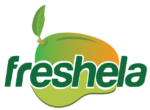
If you were to ask people how cashew nut goes from hanging seeds on trees to delicacies on the table, many people would not be able to explain the journey. Most of us are used to seeing cashew nuts readily packed on supermarket shelves or grocery stores but do not know their origin.
Cashew nuts come from the cashew tree that has an extensive root system. The cashew tree produces fruits called cashew apples that look like a pear or bell paper.
The cashew apple is yellow or red when ripe and has a sweet sour taste almost to that of an apple. The apple is used to make juices, jams, and alcoholic drinks. The fruit is not edible processing because it contains an irritant acid that is removed during processing.
The cashew nut is a small kidney-shaped seed at the bottom of the cashew apple that hangs facing down. The seed which is the consumed nut, is a white kernel inside a hard outer shell that protects it. The shell also contains a toxic acid called anacardic acid that can cause skin irritation and blisters.
Cashew nuts must undergo roasting to kill the toxic acid and remove the outer shell. Initially, this was all done manually by people cracking open the roasted cashews with their hands and rubbing them to get the final kernel but modernization and machinery have changed things.
Cashew Prices in South Africa
In 2022, cashew imports into South Africa were worth approximately 19 million US Dollars. This was an incredible increase from the previous year, marking another high-value record.
The sharpest climb was from 2014 to 2015 when the import value rose from about 14 million US Dollars to over 21 million US Dollars.
Here are the total values in import of cashews in South Africa between 2013 and 2022.

Cashew Nut Price per kg in South Africa
The price of one kilogram of raw cashew nuts in South Africa costs between ZAR 264.60 and ZAR 302.41 ( $ 13.62 and $ 15.56) on the retail market and $ 9.53 to $ 10.90 per kilogram on the wholesale market.
Climate changes affects cashew yields including the size and quality of the harvest which in turn determines the prices of that particular harvest season.
Political instability in major producing countries also disrupts the supply chain which affects the prices causing them to either go up or down.
The main factors and determinants of cashew prices in South Africa are the consumption rate and market demand.
Cashews South Africa
South Africa imports a variety of cashew nuts including raw cashews, shelled, roasted, broken cashew, and cashew products depending on the market needs and trends.
Cashews in South Africa fetch a better price in the market compared to any other nut hence the country’s effort to increase its cashew output to the market. With its high-quality cashew nuts, South Africa has a good competitive stand in the market despite all the challenges.
Cashew nuts tend to be more expensive than regular nuts such as peanuts because, unlike peanuts, cashews only bear one nut per fruit. This means, that to harvest a large volume of cashew nuts, more trees need to be planted and produce more fruits.
Cashew Nuts South Africa
The coming of technology, electricity, and machines has made cashew processing and import easier and faster today. Although this also needs investing in quality machines and equipment to make cashew production and process, it is worth it.
The process of harvesting, separating cashews from fruit, roasting, cracking open, peeling, sun drying, sorting and packing has been made easier and faster.
The cashew nut industry is projected to grow and thrive even more in the coming years with the increasing demand and consumption trends in the world.

